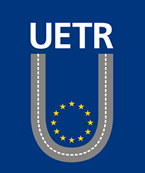22 Mar UETR delegation meets with Commissioner Kallas
24 January 2012 – UETR delegation (Francesco Del Boca, Marco Digioia, Lode Verkinderen, Laszlo Agai) has met with the Vice President of the European Commission and Commissioner for Transport Mr. Siim Kallas on the 24th of January in Brussels.
“We have been honoured to meet the Vice President of the European Commission. Since the creation of the single market, road transport sector has undergone profound changes: we are facing today anumber of challenges and we all feel that we are at a turning point by creating a new approach to road transport in Europe” says UETR President Francesco Del Boca.
UETR has discussed the place of road transport SMEs in Transport 2050 strategy and what the European Commission in concrete will do specifically for road haulers. Road haulage market has been also tackled: UETR has highlighted how liberalization should go hand in hand with the harmonization of transportation costs in order to ensure fair competition.
On supply chain issues, UETR has called for a full enforcement of co-liability principle underlining the need to guarantee the economic efficiency of the weakest part of the supply chain. “UETR has always remarked the link between the matter of transportation costs, road safety and social provisions: If we want to fully enforce social protection and road safety we need to introduce a clear and general principle of shared liability in the supply chain” said UETR Secretary GeneralMarco Digioia.
UETR has also remarked the problem of the lack of access to credit for SMEs and some inconsistencies of Regulation 561/2006: driving times and rest periods have remained basically the same and unchanged for the past 40 years; the same can ben said of road infrastructure in many Member States, while congestion levels have tremendoulsy risen in the EU. Companies today face a trade-off between economic activity and EU rules compliance.
UETR has asked about the internalization of external costs for the other modalities, considering that road transport sector has now its Eurovignette III Directive.
Finally, vocational training is of paramount importance to ensure quality of transport. The rules on professional competence of haulers/drivers require permanent education/training and represent a guarantee for high qualified drivers and overall quality, but driver’s qualification card is very (too) expensive. Road safety costs and often SMEs cannot carry the financial burden alone. There is also a need of controls on training courses in order to guarantee their effectiveness: in case of bad or low quality courses not only legality is hampered, but also fair competition and road safety.






No Comments